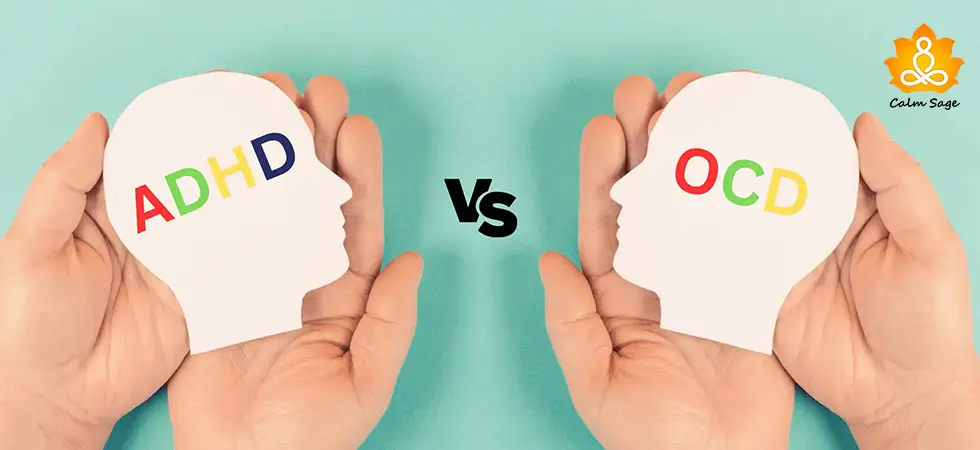Real Event OCD: How Real Is It & How to Overcome This OCD Subtype

Our minds are powerful, no doubt about that, but sometimes, the power can manifest itself in unexpected ways. Obsessive-compulsive disorder (OCD) is a common mental health disorder that can be characterized by intrusive or unwanted thoughts and repetitive behaviors. While most people think of OCD as fixating on future possibilities, there’s a lesser-known OCD subtype – Real Even OCD – that focuses relentlessly on the past.
Real-event OCD can also be known as rumination OCD or “checking” OCD as it traps you in a vicious cycle of doubt and anxiety centered around your experiences – past, present, and future.
In this article, we’re taking a look into the complexities of this OCD subtype, the triggers, symptoms, and how to treat real-event OCD.
Real Event OCD: What Is It?
Unlike classic OCD where you fixate on your anxieties, real-event OCD fixates mostly on past events. If you live with this OCD, then you might experience intrusive thoughts and urges related to something that has already happened. These thoughts often revolve around the morality of your past actions, causing you to question your decisions, intentions, and any potential consequences.
Thus, the cycle begins. The intrusive thoughts trigger your anxiety, which compels you to engage in compulsive behaviors to minimize your discomfort. These compulsions can take different forms, such as;
- Mental Reviewing: Where you repeatedly replay the event in your mind – dissecting every detail and searching for clues about your actions and motives.
- Seeking Reassurance: Where you repeatedly seek reassurance from others – friends, family, and even strangers – about the event and its consequences.
- Confession: Where you feel almost compelled to confess any wrongdoing, even if it happened years ago.
Another thing is that these compulsions offer temporary relief. The anxiety makes a comeback, and this cycle continues, causing significant distress and impacting your daily life.
Related: Compulsive Behavior vs. Impulsive Behavior
Real Event OCD Symptoms to Know
Real-event OCD manifests through a combination of intrusive thoughts and compulsive actions. Some common real-event OCD symptoms can include;
- Unwanted and persistent thoughts about past events, often focusing on mistakes or wrongdoings
- Obsessively questioning your actions, intentions, and the potential consequences
- Feeling intense guilt and shame related to past events and experiences
- Feeling compelled to seek constant reassurance from others about their actions and the events of the past
- Replaying the event and past actions in your mind repeatedly, dissecting every detail, and critiquing your behavior
- Feeling urges to undo previous mistakes, such as making amends years later or apologizing months and weeks after the event pass
This real event OCD symptoms can be time-consuming and disruptive, causing significant distress and impacting your well-being as well as your daily routine.
Here are some examples of real-event OCD…
Example #1: You constantly replay a conversation from months ago, where you made a joke that might have offended someone. You feel immense guilt and shame and keep replaying the conversation in your mind, dissecting every word, and seeking reassurance from others that you didn’t hurt anybody with your actions.
Example #2: You are haunted by a decision you made as a teen. You worry constantly about the consequences and feel the urge to confess, even though you’re in adulthood. You get stuck in the cycle of mental reviewing and seeking reassurance, only to find some form of relief.
Can We Treat Real Event OCD?
Yes, just like any other OCD, real-event OCD is treatable. The common treatment approaches for this condition can be;
1. Exposure and Response Prevention (ERP):
ERP is an evidence-based treatment that can be considered a standard treatment for OCD. This approach works by gradually exposing you to your anxiety triggers – in this case, memories – and preventing you from engaging in compulsions – mental reviewing, seeking reassurance, etc. Through repeated but gradual exposure, the anxiety that comes with your memories decreases. A therapist will guide you through a plan starting with less triggering memories and gradually progressing to more pressing ones.
2. Cognitive-behavioral therapy (CBT)
CBT is another approach that can help you identify and challenge distorted thinking that fuels your OCD symptoms. This therapy approach can help you develop more realistic and positive perspectives on your past actions and consequences.
3. Medications
In certain cases, SSRIs might be prescribed by a psychiatrist along with therapy to help you manage the anxiety symptoms associated with real-event OCD. If you’re being prescribed medications, then make sure you speak with your doctor before taking any anti-anxiety medications. Some medications can have side effects that can worsen your OCD and anxiety symptoms.
How to Cope With Real Event OCD?
While professional treatment can help, you can also engage in self-help strategies to cope with real event OCD and its symptoms;
1. Practice Mindfulness:
You can practice mindfulness exercises such as meditation and deep breathing to become more aware of your intrusive thoughts and learn how to observe them without judgment.
2. Challenge Your Thinking:
When your OCD intrusive thoughts pop up, actively challenge them and question their perspectives. Do they make sense regarding your current situation? Can you do anything to change them?
3. Try NOT to Seek Reassurance:
There will always be an urge to seek reassurance from others. Try NOT to engage that urge. Resist the temptation to seek reassurance. Doing so will help you avoid and prevent the compulsions about your past.
4. Focus on the Present:
Mindfulness can also help you focus on the present moment and prevent ruminating about your past. Try to maintain that focus. Grounding exercises, mindfulness, and other techniques can help.
5. Take Care of Yourself:
The most important thing of all is to take care of yourself. Prioritize your sleep, exercise as much as you can, and eat well-balanced meals to manage your stress, anxiety, and any triggers that threaten your well-being.
Wrap Up…
Real-event OCD is a subtype of OCD and can be debilitating. However, with effective treatment and self-help strategies, you can learn to break free from the trap of intrusive thoughts and live a fulfilling life.
You’re not alone in this struggle and help is just a click away! Many people live with OCD, so if you suspect that you’re living with real OCD, then reach out to a professional for help and treatment.
Taking the first step for your health and well-being is in your hands. Lead the charge and reclaim your peace of mind.
Did this article help? Let us know your thoughts in the comments below. You can also share your views with us at info@calmsage.com.
Take Care!




















